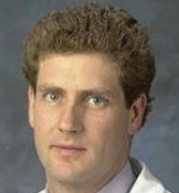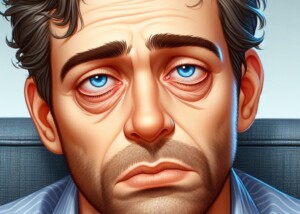
If you’ve been waking up every morning with a headache, this is less likely from a brain tumor and more likely from your brain not getting enough oxygen.
Though waking up with a headache on a recurring basis can, indeed, be caused by a brain tumor, this symptom is more likely to be the result of a common (though greatly misdiagnosed) condition that affects men and women, all ages and all sizes – whether obese, skinny or smack in-between.
The condition is obstructive sleep apnea, in which the upper airway collapses during sleep.
YES, skinny women can have obstructive sleep apnea. This disorder of sleep-related breathing is one of the most misdiagnosed and under-diagnosed of all medical conditions.
Though obesity is a major risk factor, so are the following:
• Smoking (inflames throat tissue)
• Alcohol intake close to bedtime (over-relaxes throat tissue)
• TMJ disorder (the jaw shifts backwards during sleep)
• Naturally surplus pharyngeal tissue
• Naturally small upper airway
• Naturally large tongue base
As you can see, these six elements can easily occur in younger, thin women, not just obese, middle age men.
A much less common form of sleep apnea, called central, can also cause morning headaches.
In central SA, the problem isn’t caused by a collapsed upper airway, but instead, the brain “forgets” to send the signal to breathe.
Furthermore, not all people with untreated sleep apnea snore.
With this condition, one stops breathing on an average of at least five times an hour. In severe cases the apnea episodes can run into the hundreds overnight.
Why Sleep Apnea Causes Morning Headaches
“Headaches, particularly when first awakening in the morning, may be a sign of sleep apnea,” says Lowell Steen, MD, interventional cardiologist at Loyola University Medical Center, Director of the Interventional Cardiology Fellowship Training Program, and medical advisor to 120/Life, a functional beverage with a blend of six natural ingredients that promote normal blood pressure.
Dr. Steen explains, “Sleep apnea can be central or obstructive. In both forms the patient stops breathing and carbon dioxide rises.
“With this rise, the blood vessels in the brain dilate — causing severe headaches.”
When the body senses it hasn’t inhaled for a while, the brain is aroused just enough to trigger a return to breathing, but not enough to awaken the sufferer.
Thus, you can have a few hundred stopped episodes of breathing overnight and never know it, though there may be times when you DO awaken gasping for breath.
Nevertheless, a sufferer can gasp and snort 20 times an hour without ever coming to full consciousness.
The bigger breaths to resume breathing do NOT offset the shortage of oxygen. The brain pays a price, and a morning headache results.
A sleep apnea headache disappears soon after the sufferer is fully awake, because then, normal breathing resumes, and the brain is quickly replenished with adequate oxygen.
If these morning headaches started up after getting a new pillow, this can be the cause, as it might be putting your head in an awkward position, resulting in neck strain – which can lead to a headache.
When to Suspect Sleep Apnea
Dr. Steen says, “If a patient snores, is overweight and is always tired, they likely have sleep apnea. Over time, sleep apnea can be harmful to the right ventricle.”
If you don’t snore and are not overweight, here are other symptoms highly suspicious for sleep apnea:
• Frequent urination overnight
• Never feel refreshed in the morning; always feel like you need more sleep despite sleeping at least eight hours, and drowsy throughout the day.
• Daytime drowsiness is not mitigated with naps.
• Frequent need to nap; easily fall asleep watching TV or driving.
• Cranky, irritable, diagnosed with ADD in adulthood (untreated sleep apnea may cause impaired concentration and focus due to non-restorative sleep, but may be misdiagnosed as attention deficit disorder).
• People telling you that you sometimes have long pauses between breaths during sleep.
If you wake up with headaches, this is NOT normal, and can have causes other than sleep apnea, a brain tumor or a crick in the neck from head position.
Morning headaches that are not eliminated with a change in sleeping position or pillow mean a prompt visit to your primary care physician.



























